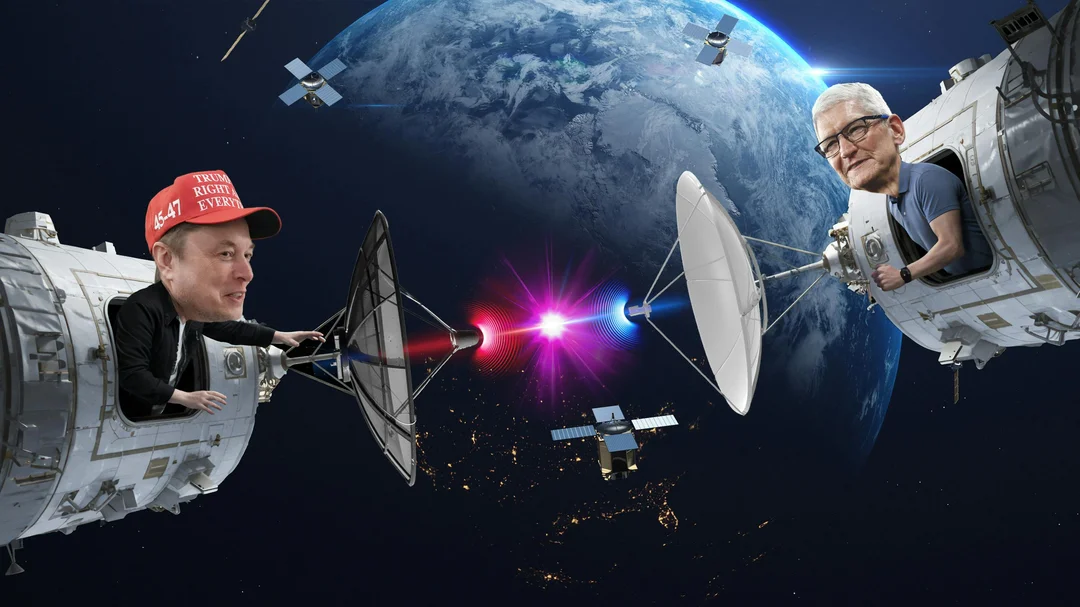
Apple’s Satellite Dreams Grounded? Musk’s Offer, Internal Doubts Stall Starlink-Like Ambitions
Apple's aspirations to revolutionize connectivity with satellite technology have faced significant headwinds, according to a recent report. While the company introduced Emergency SOS via Satellite on the iPhone in 2022, their ambitions for a full-blown satellite internet service, akin to Starlink, appear to be on hold. What led to this stall? A complex interplay of factors, including a rejected offer from Elon Musk, concerns about carrier partnerships, and internal resistance, seem to have played a crucial role.
Project Eagle, Apple's ambitious project dating back to 2015, envisioned beaming wireless internet directly to iPhones and homes via thousands of satellites launched in collaboration with Boeing. Antennas would even allow users to distribute the internet connection throughout their homes, promising a seamless alternative to traditional mobile networks. However, Tim Cook, Apple's CEO, reportedly grew concerned that the initiative would jeopardize Apple's vital relationship with telecom carriers, leading to its eventual cancellation.

The report details an intriguing encounter with Elon Musk. In 2022, following rumors that Apple would announce satellite features with the iPhone 14, Musk allegedly proposed an exclusive deal: SpaceX would provide satellite connectivity exclusively to iPhones for 18 months in exchange for $5 billion upfront. Afterwards, Apple would need to pay $1 billion per year. Musk purportedly threatened to launch a competing feature if Apple declined, setting a tight 72-hour deadline. Apple ultimately rejected Musk's offer, and he subsequently announced a partnership between SpaceX's Starlink and T-Mobile. The breakdown of this deal underscores the tension between the two tech giants and its impact on Apple's satellite strategy.
Beyond external pressures, internal skepticism regarding the viability and long-term benefits of satellite connectivity has also contributed to the slowdown. Concerns have been raised about the potential for government regulation if Apple charges for satellite services, as that could classify the company as a telecommunications carrier and trigger regulations like mandatory surveillance backdoors in iMessage. Even now, the current limited satellite offering costs Apple hundreds of millions of dollars annually, with some executives, including software chief Craig Federighi, pushing for its discontinuation. Federighi and Adrian Perica, head of corporate development, are reportedly arguing that customers are more likely to sign up for satellite features through mobile carriers.

Despite these obstacles, rumors suggest that the Apple Watch Ultra 3 may gain satellite support this year, indicating that the company hasn't entirely abandoned its satellite ambitions. However, the vision of a Starlink-like home internet service from Apple appears unlikely to materialize any time soon.
Will Apple ultimately concede the satellite connectivity race to companies like Starlink, or will they find a way to overcome these regulatory and partnership challenges? Share your thoughts and predictions in the comments below!